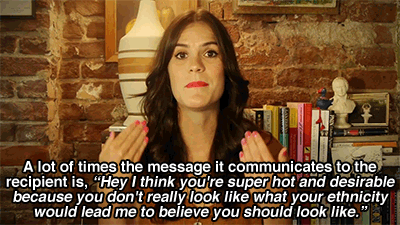Those are the exact same statement on paper. Sure I could imagine the latter statement being spit out in a hostile tone, and I could also imagine the former statement being delivered in a begrudging robotic legalistic way you see so often when someone is forced into apologizing. Tone is super important there.
They aren't the same, though. They both contain, "I open doors for everyone," by way of explanation, but the first statement contains an apology; the second statement contains an assertion, telling someone what they should think and implicitly dismissing their opinion as invalid. The apology at least has the potential to lead to better understanding - the assertion is saying you don't care how they feel.
And yes, tone is important. But no one is being forced into apologizing. You should do something because you believe it's correct, after all, not because someone on the netterwebs told you should.
How about we actually try to understand what people mean when interacting with them instead of assuming the worst and then demanding for them to apologize for offending us when in their minds they did nothing wrong? I don't see what good that does anyone.
Ah, I think you're changing the subject here. I was talking about what I thought was the polite thing to do when you have said or done something that had offended someone. I have not said anything about
looking to take offense. I'm saying that if someone
does take offense, an apology is better than saying their feelings were invalid because you didn't mean for them to feel that way.
As for the offended: No, I don't think that giving people the benefit of the doubt is a bad thing. At the same time, it may be that someone has said something that you know they meant in all good intentions, but
still you find insulting, like the word exotic. If this were the case for you, I think you ought to be able to say to someone who called you exotic, "I know you meant it as a compliment, but I really don't like being called exotic; it comes across as demeaning to me," and have that response respected.
I don't see what's so hard about the idea of respect for other peoples' feelings and boundaries, which is really all I think I'm advocating here.



